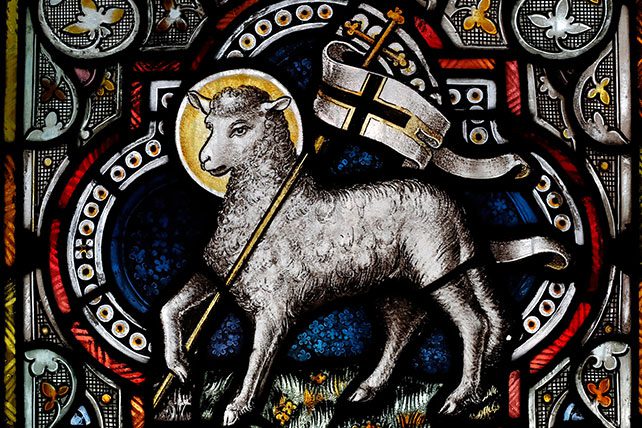The “Lamb of God” is a title that resonates deeply within Christian theology, evoking imagery of innocence, sacrifice, and redemption. This concept, woven throughout the Bible, holds profound meaning and significance.
What Is the Meaning of the Lamb of God?
The Lamb of God symbolizes several interconnected ideas, primarily innocence, sacrifice, and redemption. Let’s dissect these layers of symbolism and meaning:
- Innocence and Purity: In biblical times, lambs were considered symbols of purity and innocence, often used in sacrificial rites to atone for sins. The lamb, unblemished and spotless, represents the sinless nature required to atone for the sins of humanity.
- Sacrifice and Atonement: The lamb’s role in sacrificial practices points to the concept of substitutionary atonement. In the Old Testament, lambs were frequently used as sacrifices to atone for sins. This prefigures the ultimate sacrifice for sin, which the Lamb of God would fulfill.
- Victory and Redemption: While lambs are typically associated with vulnerability, the Lamb of God also symbolizes victory and redemption. This paradoxical victory comes through the lamb’s sacrifice, which conquers sin and death, offering salvation to humanity.
- Passover Significance: The symbolism of the lamb is deeply rooted in the Jewish festival of Passover, where a lamb’s blood marked the houses of the Israelites, sparing them from the plague of the firstborn in Egypt. This event foreshadows the saving power of the Lamb of God’s sacrifice.
Who Was Called the Lamb of God?
John the Baptist first used the title “Lamb of God” in reference to Jesus Christ. In the Gospel of John, when John the Baptist sees Jesus approaching, he declares, “Look, the Lamb of God, who takes away the sin of the world!” (John 1:29). This proclamation identifies Jesus as the one who would fulfill the prophecies and sacrificial rituals of the Old Testament, meaning he provided the ultimate atonement for sin.
RELATED: Why Did Jesus Die For Us? Understanding the Depth of His Sacrifice
Does the Lamb of God Mean Son of God?
While “Lamb of God” and “Son of God” are distinct titles, they are deeply connected in Christian theology. Jesus Christ is recognized both as the Lamb of God, symbolizing his sacrificial role, and as the Son of God, asserting his divine nature and relationship with the Father.
The title “Lamb of God” emphasizes Jesus’s role in salvation and his sacrificial death, which reconciles humanity with God. On the other hand, “Son of God” underscores his divine identity and authority. Together, these titles encapsulate the mystery of Christ’s dual nature as fully God and fully man, who came to offer salvation through his sacrifice.

